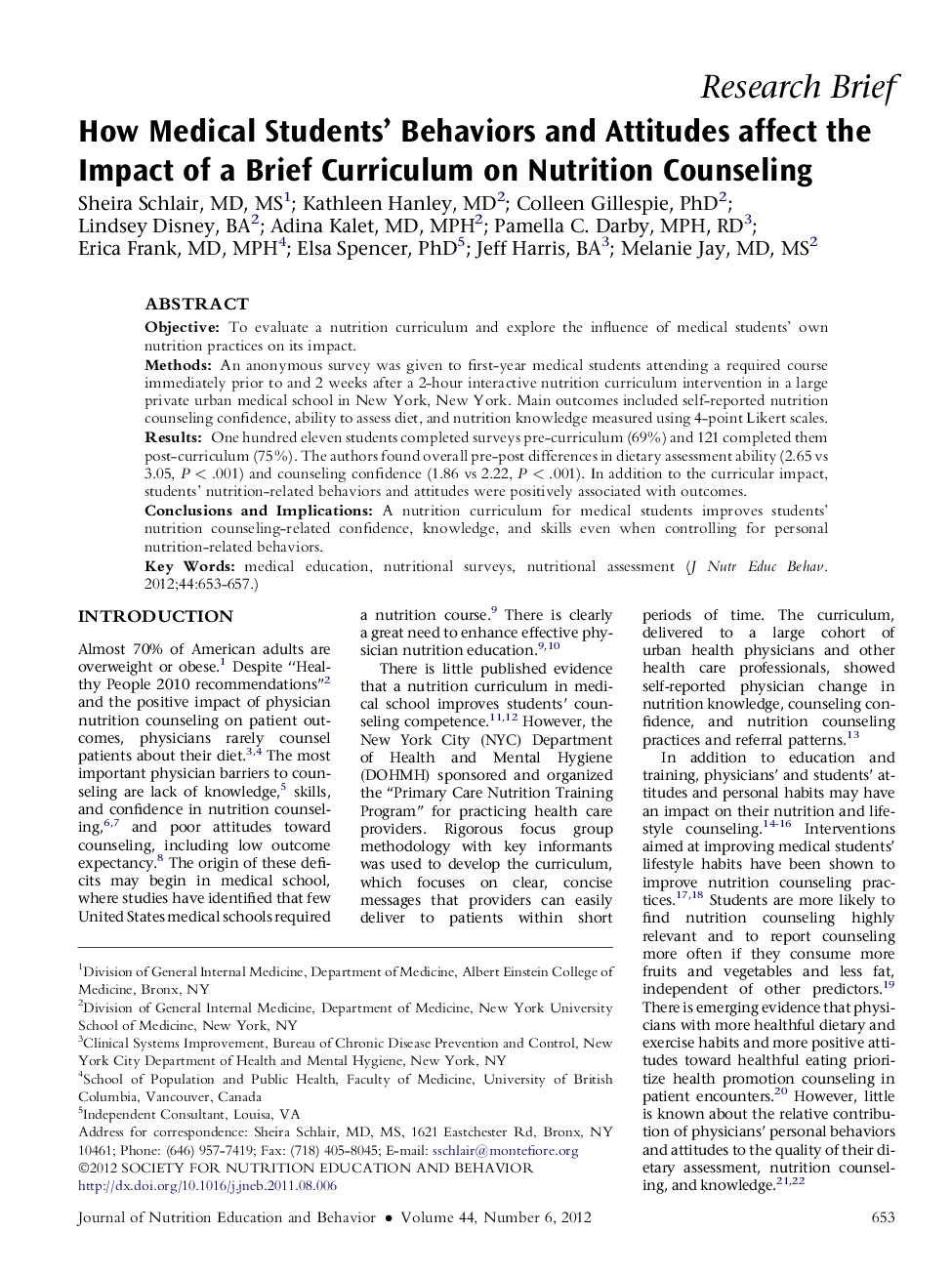| Article ID | Journal | Published Year | Pages | File Type |
|---|---|---|---|---|
| 362199 | Journal of Nutrition Education and Behavior | 2012 | 5 Pages |
ObjectiveTo evaluate a nutrition curriculum and explore the influence of medical students’ own nutrition practices on its impact.MethodsAn anonymous survey was given to first-year medical students attending a required course immediately prior to and 2 weeks after a 2-hour interactive nutrition curriculum intervention in a large private urban medical school in New York, New York. Main outcomes included self-reported nutrition counseling confidence, ability to assess diet, and nutrition knowledge measured using 4-point Likert scales.ResultsOne hundred eleven students completed surveys pre-curriculum (69%) and 121 completed them post-curriculum (75%). The authors found overall pre-post differences in dietary assessment ability (2.65 vs 3.05, P < .001) and counseling confidence (1.86 vs 2.22, P < .001). In addition to the curricular impact, students’ nutrition-related behaviors and attitudes were positively associated with outcomes.Conclusions and ImplicationsA nutrition curriculum for medical students improves students’ nutrition counseling-related confidence, knowledge, and skills even when controlling for personal nutrition-related behaviors.
